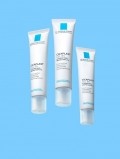Endorsements from professional bodies - a dangerous game for the elite
Product endorsements can come in all shapes and sizes, from celebrity advice on skin care regimes to the experience of past users, but the most trustworthy in the eyes of the consumer are those from professional bodies or well known consumer watchdogs.
Among the plethora of products jostling for attention and making similar claims, the one sporting the recommendation of a body of dermatologists may well catch the consumers’ eye.
Earning the right to apply?
The US body the Skin Cancer Foundation has awarded its Seal of Recommendation to a number of sun care products since its inception - including sunscreens, make-up and textiles.
In order to qualify for the Seal of Recommendation, products have to adhere to the strict requirements set by the foundation’s photobiology committee. This includes having an SPF of 15 or more that can be validated with testing on live subjects, displaying acceptable test results for phototoxic reactions and contact irritation and the substantiation of claims for water resistance.
So far, so good. The products awarded the seal have earned it, haven’t they?
Well, yes, in the sense that they fulfil the criteria set forward by the foundation. However, they have also earned the right to apply for the seal of recommendation by paying their $10,000 in an annual subscription fee to the Skin Cancer Foundation.
No fee, no Seal.
We can imagine, therefore, that there are a vast number of products that are, technically speaking, eligible for the seal, but financially speaking were not able to compete.
This is misleading for the consumer, and unfair for the small manufacturer, as consumers are falsely led to believe its products do not provide the same level of protection as those with the seal.
Furthermore, for many this is enough to bring the reputation of the foundation into question and consequently the endorsement it has made.
AAD’s Seal of Recognition
Controversy also surrounded the American Academy of Dermatologists’ Seal of Recognition for sun care products.
The body claims the seal was designed to help consumers make informed choices about sun protection products, but critics said the sizeable fees involved represented a conflict of interests for the professional body.
Manufacturers were obliged to pay $5,000 for the application of the seal, $10,000 on approval of the application and a further $10,000 a year later.
Again, no fee, no seal. For many of the dermatologists within the organization this undermined the value of the seal, not to mention the reputation of the body offering it.
AAD’s system has since been scrapped, and the organisation claims this is because the FDA monograph, which is set for publication later this year, will render it useless.
Consumer benefits?
Indeed, the benefit of such seals to the consumer remains questionable. Existing regulation necessitates the display of the SPF value on the label, and this will hopefully soon be extended to UVA protection. (UVA is in fact not mentioned in the Skin Cancer Foundation’s seal.)
This is the view taken by the UK cancer charity, Cancer Research UK, which refuses to endorse products as it believes it to be unnecessary; all products use the same methods to determine how protective they are so what is the point of endorsing some over others?
Undoubtedly, endorsement programs of this kind represent a way of raising much needed funds for some of these professional bodies.
But, in an age where consumers are becoming more and more informed it may be reckless to continue programs that can be criticized so easily, on grounds of fairness and openness to all.
In addition, manufacturers should remember that the value of the prize may be weakened if it is publicly acknowledged that not everyone was allowed onto the starting blocks.









